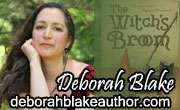
I have written much about my feelings of the word "pagan" on my primary religious blog, Of Thespiae. I've written about how the use of the word in the pagan community has become so loose that it's meaningless for all practical purposes. I've written about how, in spite of regular protests from the pagan community, the implicit "positive definition" of "paganism" ("positive definition" meaning "defining what something is"; whereas "negative definitions" define by what a word is not) is incredibly Eurocentric [2]. I've even mentioned how the "negative definition" of the word "pagan" isn't necessarily true, as the tradition of Christopaganism certainly makes it hard to say where the Christianity ends and the paganism begins. I've written about the incredibly secular climate of the pagan community in current culture.
The word "pagan" is not one I've been terribly fond of. Early on in my spiritual journey, earliest possible point being around either 1989 (when a nun at my old Catholic school gave me a copy of D'Aulaire's Book of Greek Myths and, I swear, I felt touched by Apollon in ways that Jesus and El Shaddai just never really could) or 1993 (when I first really started exploring ostensibly "pagan" paths), the word "pagan" was practically interchangeable with "Wiccan" or "witchcraft", or so it seemed when trying to find any books on the topic; there was a minority of books about Heathenry, Celtic polytheism, and neo-Druidry, but there was no uncertainty to the dominance of witchcraft-based paganism, and frankly, that only barely interested me, and not enough to really look too deeply into it. For a very brief time in high school, I practised a hodgepodge "Celtic reconstruction" of my own design, but I eschewed the word "pagan" because this didn't fit the common idea that most people had of "pagans" in the modern days, which was pretty much synonymous with "witchcraft", even if one knew that religious witchcraft wasn't as phantasmagorical as scenes from The Craft or even Practical Magic, they didn't really conceptualise it as simply "worshipping the gods of the British Isles", which is what I did, then. Toward the end of high school, I just gave up on my self-made Panceltic religion, cos most of those gods barely seemed "real" to me, and I joined the Church of Satan briefly, which is adamantly not pagan, in its self-definition, and though most members describe Satanism under the definition of Anton LaVey as "atheistic", further reading into LaVey's later essays, and not to mention certain interpretations of passages in The Satanic Bible and The Satanic Rituals, suggest that he himself was better defined as Maltheistic (a word of earliest use in print traced to Usenet in 1985, and defining one who ostensibly believes in one or more gods, but deems It/(S)He/Them as unfit for human worship; see LaVey's "God of the Assholes", which appears in Satan Speaks! ©1997, for the most clear evidence of LaVey's maltheistic, rather than atheistic beliefs). I was never a good atheist, somewhere in my head, I always believed in the gods of Hellas, and I was never maltheistic, either, because even if some deities don't want, need, or even deserve my worship, there are others that do, and by the time I was twenty-two, I basically outgrew the need for LaVey's church that I briefly had. But pagan? To see if that word fit, I put a toe in the on-line pagan community for the first time in six years when I was about twenty-four, and at that time, I'd discovered a vibrant and thriving community of Hellenic reconstructionists, most of whom had mixed feelings about the word "pagan". I pretty much only interacted with other recons for about another two or three years, and though I forget what ultimately teased me out, I had never really fully embraced "pagan" as a part of my religious identity.
...






 A new book has come to the shire filled with all the wisdom one could want to live a Hobbit-like life. It's called, Wisdom of the Shire: A short Guide to a Long and Happy Life, by Noble Smith. At first glance it looks like another marketing ploy to get a piece of the Tolkien money-pie, but with a second glance, you can see Smith delve into the principles of a good life that Tolkien envisioned, that can ultimately be evoked today.
A new book has come to the shire filled with all the wisdom one could want to live a Hobbit-like life. It's called, Wisdom of the Shire: A short Guide to a Long and Happy Life, by Noble Smith. At first glance it looks like another marketing ploy to get a piece of the Tolkien money-pie, but with a second glance, you can see Smith delve into the principles of a good life that Tolkien envisioned, that can ultimately be evoked today. 












